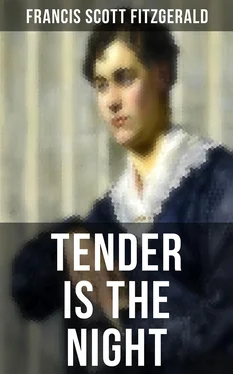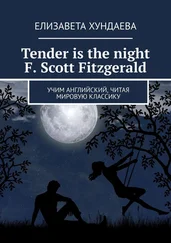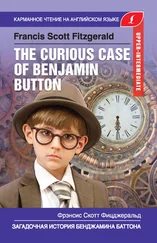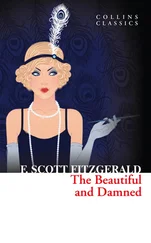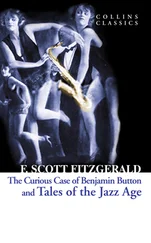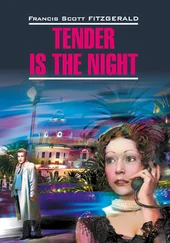“Clay, Clay, don’t—you musn’t use small petty words like that at this time. Compromise! What’s that to words like Life and Love and Death and England. Compromise! Clay, I don’t believe anyone uses that word except servants.” She laughed. “Clay, you and our butler are the only men in England who use the word compromise. My maid and I have been warned within a week—How odd—Clay, look at me.”
He looked at her and saw what she intended, beauty heightened by enthusiasm. Her lips were half parted in a smile, her hair just so slightly disarranged.
“Damned witch,” he muttered. “You used to read Tolstoy, and believe him.”
“Did I?” her gaze wandered to the fire. “So I did, so I did.” Then her eyes came back to him and the present. “Really, Clay, we must stop gazing at the fire. It puts our minds on the past and tonight there’s got to be no past or future, no time, just tonight, you and I sitting here and I most tired for a military shoulder to rest my head upon.” But he was off on an old tack thinking of Dick and he spoke his thoughts aloud.
“You used to talk Tolstoy to Dick and I thought it was scandalous for such a good-looking girl to be intellectual.”
“I wasn’t, really,” she admitted. “It was to impress Dick.”
“I was shocked, too, when I read something of Tolstoy’s, I struck the something Sonata.”
“‘Kreutzer Sonata,’” she suggested.
“That’s it. I thought it was immoral for young girls to read Tolstoy and told Dick so. He used to nag me about that. I was nineteen.”
“Yes, we thought you quite the young prig. We considered ourselves advanced.”
“You’re only twenty, aren’t you?” asked Clay suddenly.
She nodded.
“Don’t you believe in Tolstoy any more?” he asked, almost fiercely.
She shook her head and then looked up at him almost wistfully.
“Won’t you let me lean against your shoulder just the smallest bit?”
He put his arm around her, never once taking his eyes from her face, and suddenly the whole strength of her appeal burst upon him. Clay was no saint, but he had always been rather decent about women. Perhaps that’s why he felt so helpless now. His emotions were not complex. He knew what was wrong, but he knew also that he wanted this woman, this wallet creature of silk and life who crept so close to him. There were reasons why he oughtn’t to have her, but he had suddenly seen how love was a big word like Life and Death, and she knew that he realized and was glad. Still they sat without moving for a long while and watched the fire.
At two-twenty next day Clay shook hands gravely with his father and stepped into the train for Dover. Eleanor, comfortable with a novel, was nestled into a corner of his compartment, and as he entered she smiled a welcome and closed the book.
“Well,” she began. “I felt like a minion of the almighty secret service as I slid by your inspiring and impecable father, swathed in yards and yards of veiling.”
“He wouldn’t have noticed you without your veil,” answered Clayton, sitting down. “He was really most emotional under all that brusqueness. Really, you know he’s quite a nice chap. Wish I knew him better.”
The train was in motion; the last uniforms had drifted in like brown, blown leaves, and now it seemed as if one tremendous wind was carrying them shoreward.
“How far are you going with me?” asked Clayton.
“Just to Rochester, an hour and a half. I absolutely had to see you before you left, which isn’t very Spartan of me. But really, you see, I feel that you don’t quite understand about last night, and look at me, as” she paused “well—as rather exceptional.”
“Wouldn’t I be rather an awful cad if I thought about it in those terms at all?”
“No,” she said cheerily, “I, for instance, am both a romantiscist and a psychologist. It does take the romance out of anything to analyze it, but I’m going to do it if only to clear myself in your eyes.”
“You don’t have to—” he began.
“I know I don’t,” she interrupted, “but I’m going to, and when I’ve finished you’ll see where weakness and inevitability shade off. No, I don’t believe in Zola.”
“I don’t know him.”
“Well, my dear, Zola said that environment is environment, but he referred to families and races, and this is the story of a class.”
“What class?”
“Our class.”
“Please,” he said, “I’ve been wanting to hear.”
She settled herself against his shoulder, and gazing out at the vanishing country, began to talk very deliberately.
“It was said, before the war, that England was the only country in the world where women weren’t safe from men of their own class.”
“One particular fast set,” he broke in.
“A set, my dear man, who were fast but who kept every bit of their standing and position. You see even that was reaction. The idea of physical fitness came in with the end of the Victorians. Drinking died down in the Universities. Why you yourself once told me that the really bad men never drank, rather kept themselves fit for moral or intellectual crimes.”
“It was rather Victorian to drink much,” he agreed. “Chaps who drank were usually young fellows about to become curates, sowing the conventional wild oats by the most orthodox tippling.”
“Well,”she continued, “there had to be an outlet—and there was, and you know the form it took in what you called the fast set. Next enter Mr. Mars. You see as long as there was moral pressure exerted, the rotten side of society was localized. I won’t say it wasn’t spreading, but it was spreading slowly, some people even thought, rather normally, but when men began to go away and not come back, when marriage became a hurried thing and widows filled London, and all traditions seemed broken, why then things were different.”
“How did it start?”
“It started in cases where men were called away hurriedly and girls lost their nerve. Then the men didn’t come back—and there were the girls—”
He gasped.
“That was going on at the beginning?—I didn’t know at all.”
“Oh it was very quiet at first. Very little leaked out into daylight, but the thing spread in the dark. The next thing, you see, was to weave a sentimental mantle to throw over it. It was there and it had to be excused. Most girls either put on trousers and drove cars all day or painted their faces and danced with officers all night.”
“And what mighty principle had the honor of being a cloak for all that?” he asked sarcastically.
“Now here, you see, is the paradox. I can talk like this and pretend to analyze, and even sneer at the principle. Yet I’m as much under the spell as the most wishy-washy typist who spends a week end at Brighton with her young man before he sails with the conscripts.”
“I’m waiting to hear what the spell is.”
“It’s this—self sacrifice with a capitol S. Young men going to get killed for us.—We would have been their wives—we can’t be—therefore we’ll be as much as we can. And that’s the story.”
“Good God!”
“Young officer comes back,” she went on; “must amuse him, must amuse him; must give him the impression that people here are with him, that it’s a big home he’s coming to, that he’s appreciated. Now you know, of course, in the lower classes that sort of thing means children. Whether that will ever spread to us will depend on the duration of the war.”
“How about old ideas, and standards of woman and that sort of thing?” he asked, rather sheepishly.
“Sky-high, my dear—dead and gone. It might be said for utility that it’s better and safer for the race that officers stay with women of their own class. Think of the next generation in France.”
Читать дальше
